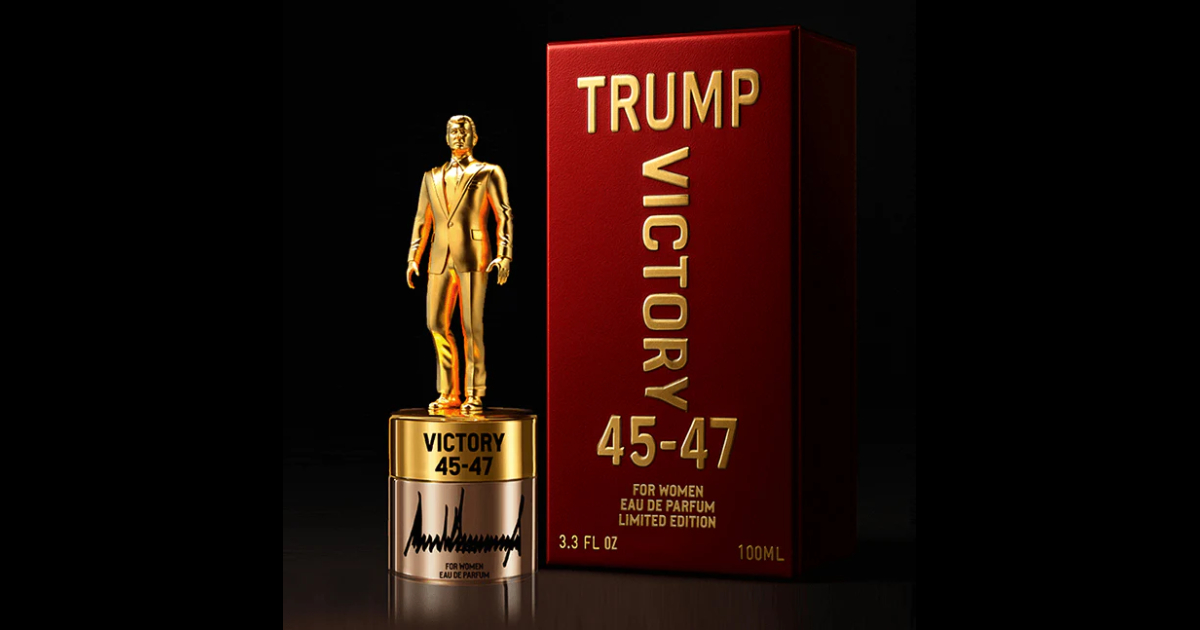The Trump Brand Returns to Licensing

By Mark Seavy
As President Trump continues his second term, there’s been a revival of his brand licensing program.
In the run up to presidential elections last fall and in the months since taking office in January, the Trump brand has been applied to footwear (sneakers, boots), the Bible, fragrances, and other products. The Trump organization has also built out a cryptocurrency business through interests in the Trump family-endorsed digital assets startup World Liberty Financial and the $TRUMP memecoin.
The program, in contrast to the pre-presidential era when the Trump organization had in-house licensing staff, appears to be administered by CIC Ventures, which was established in Palm Beach, FL in 2021 after being formed in Delaware.
At the time, CIC’s two managers were listed as Nicholas Luna, Trump’s former personal assistant in the White House, and John B. Marion IV, an attorney with the West Palm Beach, FL law firm Upchurch Watson White & Max, Florida business records show.
Since being formed, CIC has struck several licensing agreements with 45Footwear LLC (sneakers, fragrances), a Sheriden, WY firm that filed a registration for an LLC in January 2024 and appears to be affiliated with The Cloud Peak Law Group with which it shares an address. The registering agent for 45Footwear is listed as Andrew Pierce, an associate at Wyoming Trust and LLC, which is also affiliated with Cloud Peak. Cloud Peak is listed as having one attorney, Mark Pierce, who practices estate planning, asset protection and corporate services.
Cloud Peak claims to have established more than 5,000 LLCs for clients. Wyoming law allows LLCs to registered anonymously by anyone for about $100 and allows registered agents to be a point of contact for LLCs to keep ownership anonymous.
During his first term, President Trump moved his assets into a trust controlled by his sons while keeping ownership of his companies. That was a move Trump and his staff said at the time would shield him from potential conflicts.
The creation of trusts has much to do with the Foreign and Domestic Emoluments Clauses of the U.S. Constitution, which allow for the President to be paid for services but bar him receiving “any other emolument” from the United States. The clause was included in the Constitution as an anti-corruption measure to ensure the President remained independent and free of “undue influence.”
The trust created during Trump’s first term required that profits from foreign governments be turned over to the United Treasury. By the end of 2017, the Trump organization said that amounted to a $151,470 donation but didn’t provide further details.
The emoluments clause as it applies to President Trump has faced legal challenges. A U.S. District Court in Maryland ruled in 2018 during President Trump’s first term that his access to profits from foreign and U.S. hotels violated the emoluments clauses. But the U.S. Supreme Court vacated the lower court ruling in 2021, finding the case “moot” since Trump was no longer President.
“He [President Trump] walks a fine line given that the framers of the Constitution were concerned about a President receiving any gift that compromises the position,” a licensing attorney said. “I am not sure that licensing in many cases rises to that level and may be beyond what was defined as emoluments. But in walking that fine line, President Trump can encourage legislation that improves an industry in which he is actively invested in. If licensing got to the point where it impacts decisions he made as president, maybe that would qualify [under the emoluments act], but I am not sure it has gotten to that point.”




